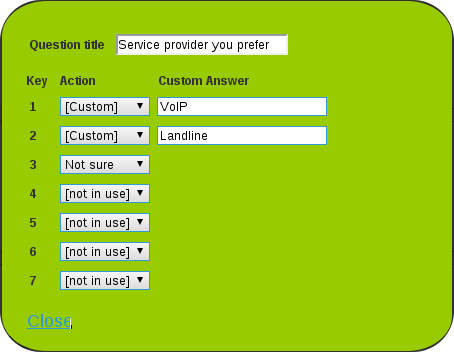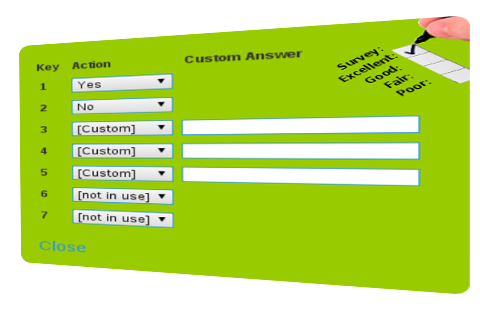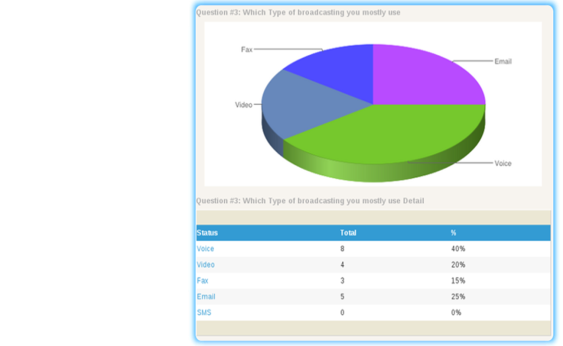Amidst a competitive business environment, customer experience plays a vital role in achieving success and retaining loyal customers. To meet evolving expectations, businesses seek feedback to enhance their offerings. Inbound phone surveys have emerged as a valuable tool for improving customer experience. By directly engaging customers, businesses gain insights, identify pain points, and make data-driven improvements. This article delves into the concept of inbound phone surveys and their significance in elevating the overall customer experience.
Section 1: Understanding Inbound Phone Surveys
1.1 What are Inbound Phone Surveys?
Inbound phone surveys are a client feedback collection strategy that includes starting phone calls to pick up important experiences into their encounters. Not at all like outbound studies, where businesses contact clients, inbound phone surveys are activated by clients themselves, ordinarily after connection with a item or benefit. This approach permits for gathering opportune input whereas the customer’s involvement is still distinctive in their memory, giving an opportunity to capture profitable experiences.
1.2 Benefits of Inbound Phone Surveys
Inbound phone surveys offer several benefits that contribute to enhancing the customer experience:
1.2.1 Personalized Interaction:
Inbound phone surveys energize individualized and coordinate engagement with clients, developing a sense of centrality and giving a feeling of appreciation. In stark differentiate to automated online ponders or emails, phone surveys show a human component that empowers clients to verbalize their contemplations and sentiments more effectively. This interpersonal association not as it were elevates the caliber of feedback but moreover prepares businesses with significant insights into client experiences and feelings.

Inbound Phone Surveys
1.2.2 Real-Time Feedback:
By reaching customers immediately after their interaction, businesses can capture real-time feedback, enabling them to address issues promptly and improve customer satisfaction. This immediacy enhances the accuracy and relevance of the feedback received.
1.2.3 Detailed Insights:
Integrating phone conversations into surveys empowers businesses to collect comprehensive and finely detailed feedback, surpassing alternative survey methodologies and generating invaluable insights into customer preferences, challenges, and anticipations. The interactive character of phone surveys encourages extensive dialogues, unveiling precious insights that can steer well-informed business judgments. By delving deeper into customer viewpoints, organizations acquire a holistic comprehension of their target demographic and can adapt their strategies to adeptly cater to their requirements.
1.2.4 Higher Response Rates:
Inbound phone surveys frequently yield elevated response rates when juxtaposed with alternative survey approaches, mainly because customers are inclined to engage in a conversation rather than merely responding to an email or completing an online form. This heightened response rate not only guarantees a more comprehensive and diverse pool of feedback but also ensures that the sample gathered is more representative of the customer base.
Section 2: Implementing Inbound Phone Surveys
2.1 Designing Effective Survey Questions
The design of survey questions plays a crucial role in gathering relevant and actionable feedback. When designing inbound phone surveys, consider the following factors:
2.1.1 Open-ended Questions:
Incorporating open-ended questions permits customers to provide detailed input, sharing their experiences and suggestions more freely. These questions empower clients to express their thoughts, permitting businesses to gain more profound insights into their preferences, torment focuses, and zones for improvement.

Implementing Inbound Phone Surveys
2.1.2 Rating Scales:
Counting rating scales enables businesses to degree client fulfillment and distinguish regions for headway based on client ratings. These scales allow quantifiable information that can be analyzed and compared over distinctive clients or time periods.
2.1.3 Demographic Questions:
The collection of demographic data serves as a vital device for businesses, permitting them to categorize client feedback and customize their offerings for distinct target demographics. When businesses have insights into the statistic backgrounds of their feedback providers, they pick up the capacity to recognize trends and thereby make better-informed choices with respect to client preferences and requirements.
2.2 Training and Empowering Survey Agents
The success of inbound phone surveys relies on the skills and abilities of the survey agents who engage with customers. Training and empowering survey agents are essential steps in implementing effective phone surveys:
2.2.1 Effective Communication Skills:
Survey agents need to be trained in active listening, empathy, and effective communication to engage customers in meaningful conversations and extract valuable insights. They should be able to navigate conversations smoothly, ask follow-up questions, and make customers feel comfortable sharing their experiences.
2.2.2 Product and Service Knowledge:
Agents should have a comprehensive understanding of the products or services being overviewed, enabling them to address client inquiries and concerns more effectively. Learned agents can give accurate data, resolve issues expeditiously, and upgrade the overall client experience.
2.3 Ensuring Data Privacy and Compliance
Maintaining client trust and ensuring their protection is of utmost importance when conducting inbound phone studies. To ensure data privacy and compliance, businesses should consider the taking after:
2.3.1 Data Protection:
Businesses must prioritize data protection and ensure that client data is handled safely and in compliance with relevant controls, such as GDPR or CCPA. Implementing robust data security measures, such as encryption and secure storage, helps maintain client confidentiality and builds believe.
2.3.2 Consent and Opt-Out Options:
Customers ought to be informed around the purpose of the overview, their rights regarding data utilization, and provided with the option to opt-out if they don’t wish to participate. Obtaining explicit consent from customers before collecting their feedback ensures straightforwardness and respects their privacy choices.
Section 3: Leveraging Inbound Phone Surveys for Enhanced Customer Experience:
3.1 Prompt Issue Resolution
By coming to out to customers through inbound phone surveys, businesses can promptly address any issues or concerns raised, demonstrating a commitment to client satisfaction. Resolving issues in a opportune way not as it were enhances the client experience but also prevents negative word-of-mouth and potential customer churn.
3.2 Product and Service Improvement
Inbound phone surveys give a wealth of information and insights that can be used to recognize areas for improvement in products and services. By understanding client pain points and inclinations, businesses can make data-driven decisions, refine their offerings, and provide a more custom fitted and fulfilling client encounter. The feedback gathered from phone overviews serves as a valuable asset for continuous improvement and development.

3.3 Personalized Customer Engagement
By involving customers in inbound phone surveys, businesses can inject a personalized touch into their interactions, demonstrating a sincere concern for their well-being. Through the active listening and resolution of customer feedback and concerns, enterprises can forge more robust connections, nurture loyalty, and set themselves apart from rivals. This tailored method to customer engagement plays a pivotal role in crafting favorable experiences and nurturing enduring customer relationships.
Conclusion:
Inbound phone surveys offer a powerful tool for enhancing customer experience by providing personalized and timely feedback. By implementing effective survey strategies, training survey agents, and ensuring data privacy, businesses can leverage inbound phone surveys to gain valuable insights, promptly address customer issues, and improve their products and services. In an era where customer satisfaction is paramount, businesses that prioritize the customer experience through inbound phone surveys will stand out and thrive in the competitive market.
Leveraging Open Source in ICT